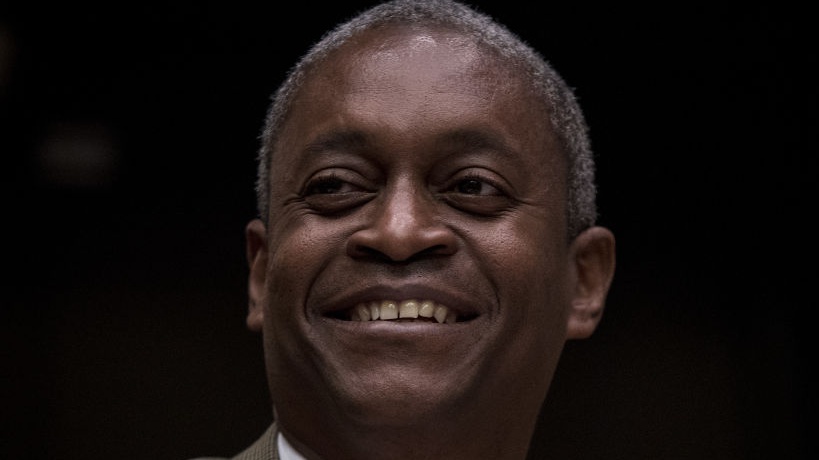Raphael Bostic, the first Black and openly gay president of the Federal Reserve Bank of Atlanta, is joining in the efforts to provide reparations to Black Americans.
“The legacies of past racism are still present in our society," Bostic, who became the bank's first Black president in 2017, told CNN. "We have to think about what things are necessary to offset the impacts of those old systems that still flow through."
According to U.S. News & World Report, the federal reserve’s most recent statistics demonstrate that white families have an average $171,000 net worth including savings, investments and homeownership. For Black families, that number is significantly lower, at only $17,600.
"There are definitely merits to it in the sense that, if people have been harmed by laws, then there should be a discussion about redress," Bostic said.
Earlier this month, Amalgamated Bank became the first major bank in the U.S. to publicly endorse reparations.
Other cities are also leading the reparations movement, including Austin, Asheville and Evanston as Blavity previously reported.
"We have African Americans today who have a lot less wealth," the Harvard graduate added, “in part because they have not been able to inherit the wealth that would have accrued had their ancestors been able to accrue that wealth.”
Most recently, prominent businesses such as Starbucks and Goldman Sachs have partnered with a new initiative named NinetyToZero, alluding to the nearly 90% wealth gap between Black and white Americans to help alleviate wealth disparities. The goals of the initiative are to “recruit, hire, grow and support Black talent.”
NinetyToZero reported that if efforts persist, closing the racial wealth gap could increase the US GDP by $1.5 trillion over the next 10 years.
“Every business has a responsibility — and can influence others — to advance racial equity, create opportunities for others and strengthen the communities it serves,” Starbucks’ CEO Kevin Johnson said in a statement, according to U.S. News & World Report. “Starbucks believes in using our scale for good, and we will address the systemic barriers which keep Americans from reaching their full potential.”
Anne Price, president of the Insight Center who has been leading the Closing the Racial Wealth Gap initiative since 2011, said that addressing reparations will require extensive protocols.
“The sheer magnitude and enduring legacy of discrimination, segregation, and intentional theft [from Black Americans] require a suite of policies and strategies that are far-reaching and structural,” she said, as mentioned on NinetyToZero’s website. "Anything less will prevent us from enacting meaningful change to the rules and structures that uphold wealth inequality."
In December, NBC News reported that a coalition of 37 U.S. companies including Bank of America, Verizon and Nike are aiming to hire and invest in one million Black Americans over the next 10 years in an effort to reduce economic barriers.
Rev. Dr. Starsky Wilson, CEO of the Children’s Defense Fund, another group affiliated with NinetyToZero, said that racial wealth inequality threatens America’s future.
“Racial wealth inequity is a threat to child well-being and America’s future,” he said in a statement. “Institutions committed to the promise of Black children and families must push beyond public statements to concrete action to close the wealth gap.”
